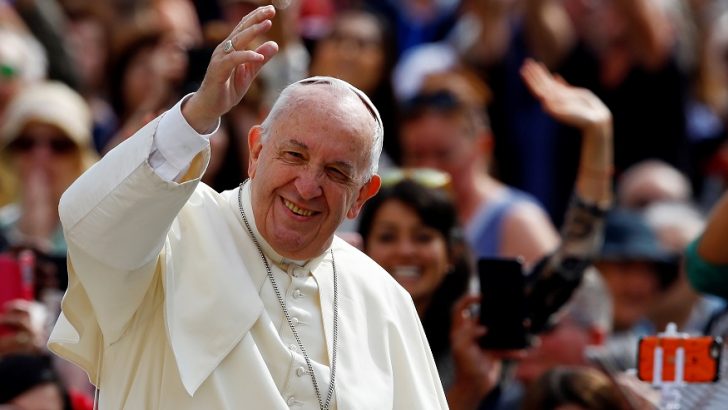This weekend marks the third anniversary of the election of Pope Francis. I was in Rome that cold March evening when it was announced that the cardinal-electors had chosen the 77-year-old Archbishop of Buenos Aires Jorge Bergoglio.
He was the first Jesuit Pope and the first Pope from Latin America. His evident humility endeared him to the tens of thousands of pilgrims gathered in St Peter’s Square to see the new Bishop of Rome. The fact that he chose the name Francis – the patron saint of Italy – immediately had the home crowd on his side. He began his remarks by asking those gathered to pray for his predecessor Benedict XVI. Then, in what has become a hallmark of his papacy, he asked the people to pray for him.
Almost immediately, the media fell in love with this Pope from the new world. There were initial rumblings about his role in Argentina’s bitter ‘dirty war’ (1975-1983) when some accused him of not doing enough to protect priests persecuted by the military regime, but this soon passed. In Pope Francis, the media had found a man who fascinated them. “The honeymoon will soon end,” was the conventional wisdom in Rome. Veteran Vatican-watchers marvelled at the reaction to Francis from those who had previously been hostile to the Catholic Church and confidently predicted that it would not last.
Well, three years on, the honeymoon shows no sign of petering out. If anything, fascination with the Franciscan papacy only increases.
Since his election, Francis has caused many people – and not just Catholics – to look at the Church again. With his proclamation of God’s mercy he has called Catholics to understand that the story of faith says more about what God has done for us rather than what we have to do for God.
He has dreamed loudly of a Church transformed and used the wonderfully evocative image of Catholicism as a ‘field hospital’ where the wounds of those who suffer are bound up.
The modern world, he has said, requires a deeply merciful Catholicism that is unafraid of change.
Speaking last November in Florence, Italy, the Pontiff said Catholics must realise that “we are not living in an era of change but a change of era”.
“Before the problems of the Church it is not useful to search for solutions in conservatism or fundamentalism, in the restoration of obsolete conduct and forms that no longer have the capacity of being significant culturally,” he insisted.
“Christian doctrine is not a closed system incapable of generating questions, doubts, interrogatives – but is alive, knows being unsettled, enlivened,” the Pope said. “It has a face that is not rigid, it has a body that moves and grows, it has a soft flesh: it is called Jesus Christ.”
Reform
“The reform of the Church then, and the Church is semper reformanda (always to be reformed)… does not end in the umpteenth plan to change structures,” he continued. “It means instead grafting yourself to and rooting yourself in Christ, leaving yourself to be guided by the Spirit – so that all will be possible with genius and creativity.”
So, the broad vision of reform that the Pope is proposing is, first and foremost, a spiritual revolution: a return to the face of Christ rather than, as he points out, an endless obsession with structures.
But, you can’t please everyone as Pope John Paul II didn’t, Benedict XVI certainly didn’t and Pope Francis doesn’t either.
Guardian columnist Nick Cohen has rounded on some of his journalistic colleagues who have embraced Pope Francis as if he is somehow dismantling the Catholic faith. “Why supposed liberals continue to believe Pope Francis is one of them is inexplicable to me.
“But then supposed liberals are becoming ever harder to understand,” Mr Cohen recently concluded.
Some Catholic conservatives grumble because they think the Pope’s freewheeling style of communication leads to confusion. What they long for is clarity. On the other hand, liberals complain because the Pope has not embraced their plan to change the Church beyond recognition and water down the more challenging aspects of Church teaching.
Francis has put both sides on notice that they will be disappointed if they wish to see the Church as merely an ideological battleground.
Response
But, the Pope may be about to face his biggest challenge yet. Later this month he is expected to sign the much-anticipated apostolic exhortation on the family.
The document will form the Pope’s response to the two-year synod process that has looked at – amongst numerous other things – controversial issues like Holy Communion for divorced and remarried Catholics and the place of gay Catholics in the life of the Church.
Inevitably, the Pope will annoy some people and delight others. Time will tell.


 Michael Kelly
Michael Kelly
